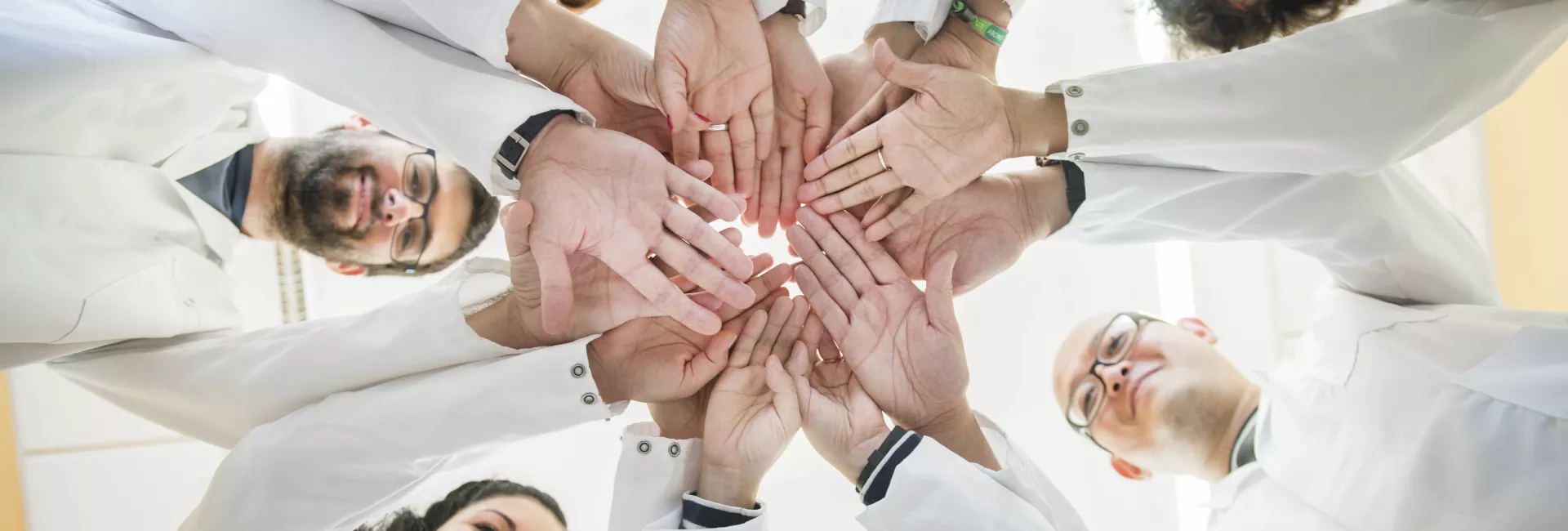Com a part de la nostra missió de promoure una recerca excel·lent en un entorn multidisciplinari, adoptem el compromís de formar científics i maximitzar l’impacte de la nostra ciència en la societat.
Coordinada per l’Oficina Acadèmica, amb la col·laboració d’altres departaments, la formació complementària se centra en els nostres investigadors doctorals i postdoctorals. Tanmateix, també s’implementen activitats de formació a tota la comunitat.
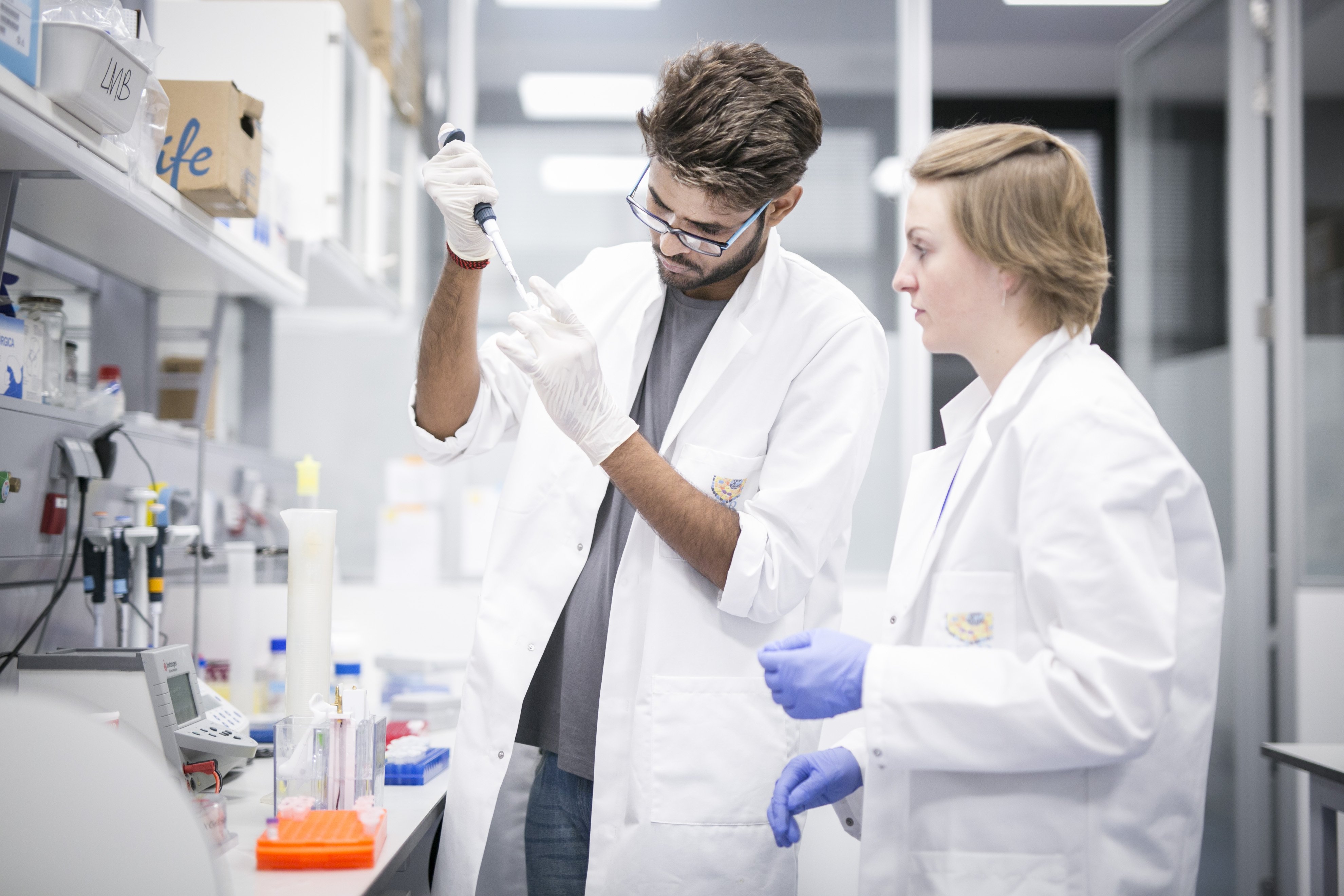
Activitats formatives
Oferim una àmplia gamma d’activitats de formació periòdiques (cursos i tallers) més enllà del laboratori que busquen desenvolupar i enfortir les competències bàsiques complementàries necessàries per a una carrera investigadora reeixida. El nostre programa de formació tracta principalment d’habilitats transferibles, però també inclou cursos més tècnics. Les activitats formatives es divideixen en les categories següents:
1. Desenvolupament professional
Tallers per millorar els coneixements, les habilitats i l’experiència dels investigadors, que els permetran aprofitar la seva ciència i obrir oportunitats professionals més enllà del món acadèmic.
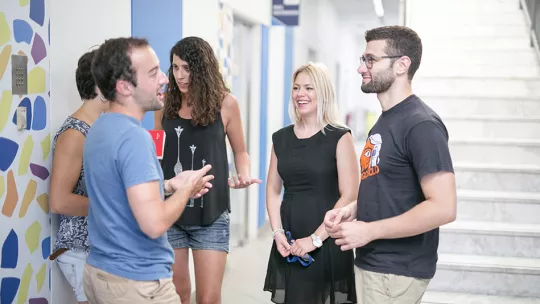
2. Innovació
El Departament d’Innovació de l’IRB Barcelona participa activament en el disseny d’activitats de formació relacionades amb la innovació (ja sigui impartint-les o facilitant el contacte amb experts). La formació està dissenyada per millorar un ampli ventall d’aptituds tant tècniques com interpersonals relacionades amb l’emprenedoria i el desenvolupament empresarial.
Aquesta secció inclou tallers i activitats de formació, que es divideixen en quatre categories: transferència de tecnologia, emprenedoria, proposta de valor i innovació.
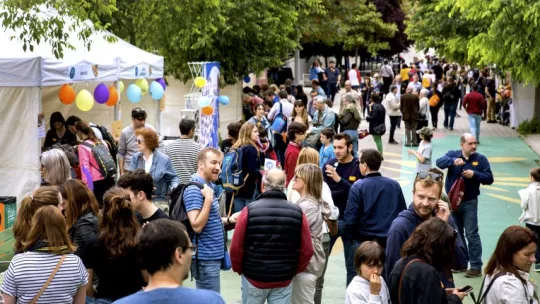
3. Comunicació
Els tallers sobre habilitats comunicatives tenen com a objectiu ajudar els investigadors a millorar la seva comunicació oral/escrita no només quan s’adrecen a un públic científic, sinó també al públic en general.
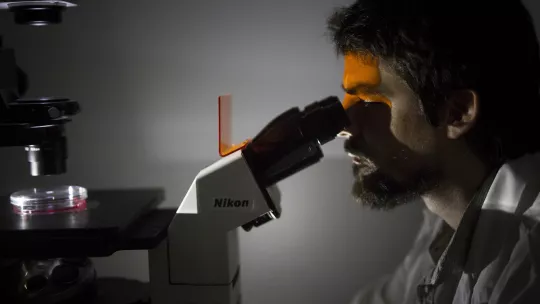
4. Formació cientificotècnica
Els tallers d’habilitats tècniques i científiques pretenen millorar les habilitats i els coneixements dels investigadors respecte a tècniques específiques, coneixements informàtics, etc.
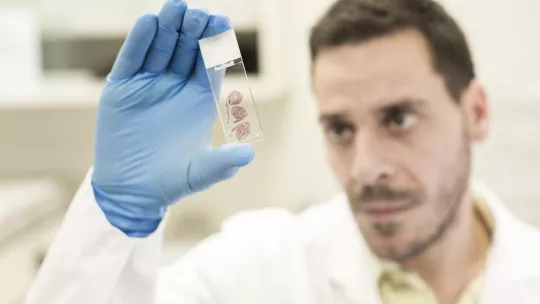
5. Desenvolupament professional personal
Cada investigador doctoral està supervisat per un comitè assessor de tesi (TAC), format per tres membres. El TAC no només pretén tutelar, supervisar i orientar l’investigador en tots els aspectes relacionats amb la tesi i el desenvolupament professional, sinó també atendre les preocupacions individuals que puguin sorgir.
A més, seguint els principis de la Carta Europea de l’Investigador, des del 2020 l’IRB Barcelona està implementant un conjunt de mesures per reforçar el desenvolupament professional de manera personalitzada. En aquest sentit, el 2019 diversos membres del Departament de Recursos Humans i Assumptes Acadèmics van rebre formació especialitzada com a “assessors professionals” i ara estan duent a terme plans de desenvolupament professional individualitzats per a investigadors doctorals, que els ajuden a identificar, adquirir o enfortir habilitats que serviran per millorar les seves perspectives laborals.
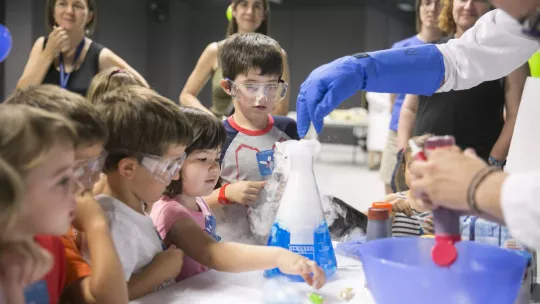
Programa d'activitats
The first session will concentrate on the well-established methods of classical transgenesis and gene-targeting via embryonic stem cells, and will include examples of how to produce a range of mutation types; for example over-expression models, gene knock-outs and point mutations, both constitutive and conditional.
The second session will address more recent developments, such as the use of gene-editing nucleases, their advantages and limitations, and novel methods of gene transfer.
The workshop will provide a general description of the unit, an introduction to basic statistical concepts, an overview of research integrity topics and research data management, and hands-on experience of bioinformatic tools available on the web.
Enablecares Entrepreneurship “Online Closure Event”, participants from previous editions of the course from Barcelona, Nijmegen, Milan & Copenhagen are invited to come together to enhance the multi-site experience & put into practice the know-how and skill-set developed during the course in a “Business Case Workshop” led by expert entrepreneurial trainer Jeff Skinner. They will also get to hear first-hand experiences from four life-science entrepreneurs, one from each site.
#Enablecares
What can you do to make yourself a more effective doctoral researcher and get the most out of your PhD?
BIST centres by using the VITAE’s framework, have organised an interactive and intensive two-day course: “How to succeed in your PhD?”, which has been designed for you as first year doctoral researcher and will look at practical ways to increase your effectiveness and meet the challenges of your PhD.This round table embraces the philosophy of the ENABLECARES project regarding training in entrepreneurship & complementary skills for young researchers working in the life sciences.
#BCNHealthInnovationWeek
Entrepreneurship & innovation training course optimised for biomedical researchers is aligned with market demands and strategic policies. This course seeks to empower junior scientists by giving them the tools to explore their potential as entrepreneurs and their interest in pursuing careers in business or innovation management, thereby increasing their employability in academia and beyond.
The workshop will introduce participants to the field of experimental histopathology by reviewing the basic concepts of pathology (macroscopic and microscopic lesions/tissue evaluation), and the routine and specialised histological techniques used to obtain and process tissue samples. Notions of digital pathology, image acquisition and processing will be also covered.
Moreover, several examples of the applications of histopathological studies to biomedical research will be presented.
The session is addressed mainly to PhD researchers and users of the Histopathology Facility (previous registration requested).
Do you want to continue improving as a PreDoc researcher and excel at your PhD?
The course How to succeed in your PhD [II] for doctoral students has been exclusively designed by Kate Mahoney and the Barcelona Institute of Science and Technology (BIST) using VITAE’s framework. It will offer you the opportunity to focus on developing competences for successful self-management and development during the doctorate.
The Advanced Digital Microscopy Core Facility is organising a 11-hours course on Advanced Optical and Fluorescence Microscopy, including Image Analysis.
The first session will concentrate on the well-established methods of classical transgenesis and gene-targeting via embryonic stem cells, and will include examples of how to produce a range of mutation types; for example over-expression models, gene knock-outs and point mutations, both constitutive and conditional.
The second session will address more recent developments, such as the use of gene-editing nucleases, their advantages and limitations, and novel methods of gene transfer.
Managing projects with impact, excellence, and efficacy
In this course we will introduce the basic concepts, techniques and procedures of Project Management. We will learn the vocabulary and general guidelines and understand the process in its entirety.
This workshop led by Cecilia Gorriz (digital designer) will be focused on how to create and edit scientific images with Adobe Photoshop and Adobe Illustrator.
This workshop led by Cecilia Gorriz (digital designer) will be focused on how to create and edit a scientific thesis with Adobe Indesign.
If you are a young life scientist, SCI FI can give you the skills you need to thrive as an innovator in the healthcare industry.
A general introduction to the Python programming language, oriented towards Scientific Computing
The workshop will provide a general description of the unit, an introduction to basic statistical concepts, an overview of research integrity topics and research data management, and hands-on experience of bioinformatic tools available on the web.
Leading in strategy and culture in a research environment
The sessions will explore theories and test strategies that contribute to your individual leadership development. This is a practical and participative workshop. You will work in small groups to apply the theory to your individual leadership challenges and create a professional development plan to apply new approaches.
The course will cover a range of genomics and transcriptomics applications currently offered by the Functional Genomics Core Facility (FGCF). This year, we will pay special attention to the new field of spatial biology, as well as single cell transcriptomics and epigenomics.
What can you do to make yourself a more effective doctoral researcher and get the most out of your PhD?
BIST centres by using the VITAE’s framework, have organised an interactive and intensive two-day course: “How to succeed in your PhD?”, which has been designed for you as first year doctoral researcher and will look at practical ways to increase your effectiveness and meet the challenges of your PhD.Entrepreneurship & innovation training course optimized for biomedical researchers is aligned with market demands and strategic policies. This course seek to empower junior scientists by giving them the tools to explore their potential as entrepreneurs and their interest in pursuing careers in business or innovation management, thereby increasing their employability in academia or beyond.
